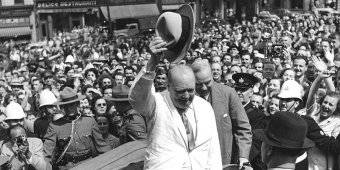Across from the House of Commons stands the powerful statue of Winston Churchill, one of the most prominent British leaders of all time.
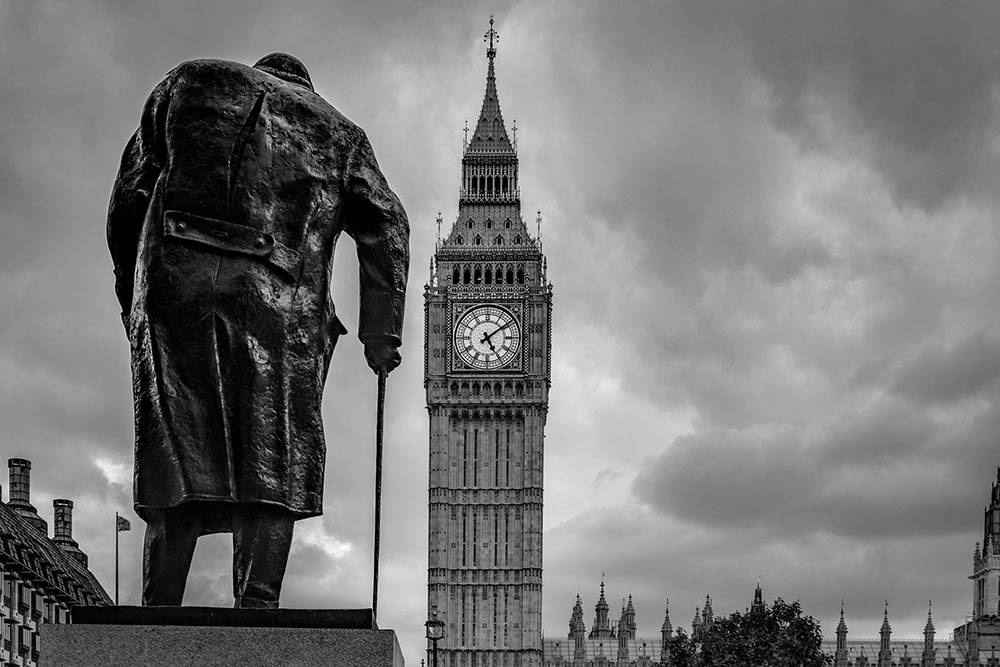
This British hero faced brutal Nazism and spread the spirit of resistance in his nation until it defeated Hitler, but Churchill had another side that only those who have delved into his history would know. It was the residents of the former British colonies who bore the brunt of this other side. In Churchill's eyes, they were primitive lowly populations who had to be committed to nothing but pleasing the more civilized conquerors. He thought they should never be ungrateful to the occupiers, let alone daring to revolt against them like what Indians, Arabs and Africans did. Churchill came back into the limelight when Gary Oldman won the Best Actor Oscar in March for his role as the British leader in "Darkest Hour", a blockbuster that shows how selective drama producers can be while portraying pivotal historical figures. Generally speaking, Churchill remains a glorified protagonist for historians and public opinion, even though he committed what could be deemed war crimes when he was the Minister of Defense and Secretary of State for the colonies before becoming Prime Minister.
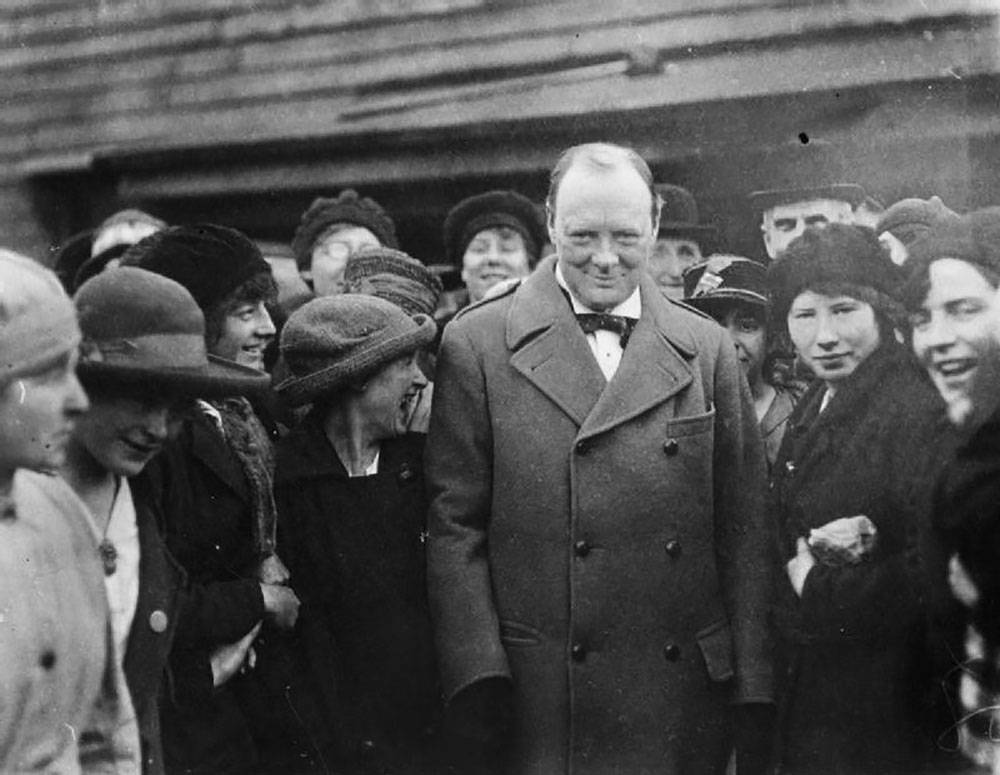
His policies towards the insurgency in Iraq, which he called Messpot -- meaning the incubator of problems -- instead of the ancient Greek name Mesopotamia, was testament to Churchill's cruelty while dealing with the British colonies' inhabitants. In 1920, a tribal uprising broke out against the British occupation in the Middle Euphrates region in Iraq with the participation of Sunni and Shiite clans. This armed revolt disturbed Churchill who was the defense and aviation minister at the time; the cost of the war was hefty, with more forces required to contain the situation amid a surge in the tribal armed attacks. Consequently, Churchill feverishly called for "aerial policing", which meant intensive air strikes to submit the insurgents, since this assault would be the least costly and most effective. According to historical references, Churchill spoke to Hugh Trenchard, the Marshal of the Royal Air Force (RAF), telling him, "I think you should certainly proceed with the experimental work on gas bombs, especially mustard gas, which would inflict punishment on recalcitrant natives without inflicting grave injury on them". He also expressed willingness to immediately order the production of this type of bombs. Churchill ignored the grave harm of these bombs, which could kill children and the elderly. His goal was to force Iraq to surrender as soon as possible and at the lowest cost; sending thousands of troops to the battlefield would have cost him millions of pounds. Historians have differed on whether Britain actually used the gas to abort the 1920 revolt in Iraq. Yet the point is even if it was not eventually used because it was unnecessary following the ferocious air strikes, Churchill's consent shows the other side of his personality. Arthur Travers Harris, the RAF squadron leader who helped crush the 1920 Iraqi insurgency and later supervised the destruction of German cities in World War II, was dubbed bomber after commenting on his role in the bombardment of Iraq. "The Arabs and Kurds now know what real bombing means in casualties and damage. Within 45 minutes a full-size village can be practically wiped out and a third of its inhabitants killed or injured, by four or five machines which offer them no real target, no opportunity for glory as warriors, no effective means of escape," he said.
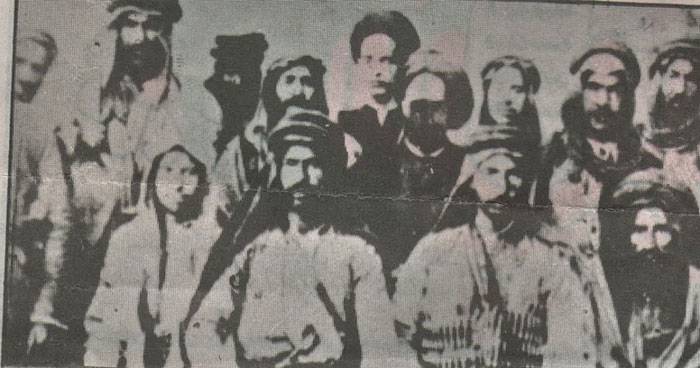
The leaders of the 1920 revolt in Iraq
In the late 1930s, when he was a RAF brigadier general, Harris said during the Arab revolt in Palestine that "the only thing the Arab understands is the heavy hand", adding that it would be used sooner or later. In Iraq, Churchill's plan paid dividends and put an end to the revolt, with air strikes killing thousands of clan members and wiping out their villages. Ali Al-Wardi commented on the British onslaught on Tuwairij City, east of Karbala, in his Arabic book "Social Glimpses of the Contemporary Iraqi History - on the 1920 Revolt". "The British forces later started to burn and ravage nearby villages, and used machine guns against any human... many of the locals had to flee their villages while carrying whatever they can carry, screaming without having a clue where they were heading."
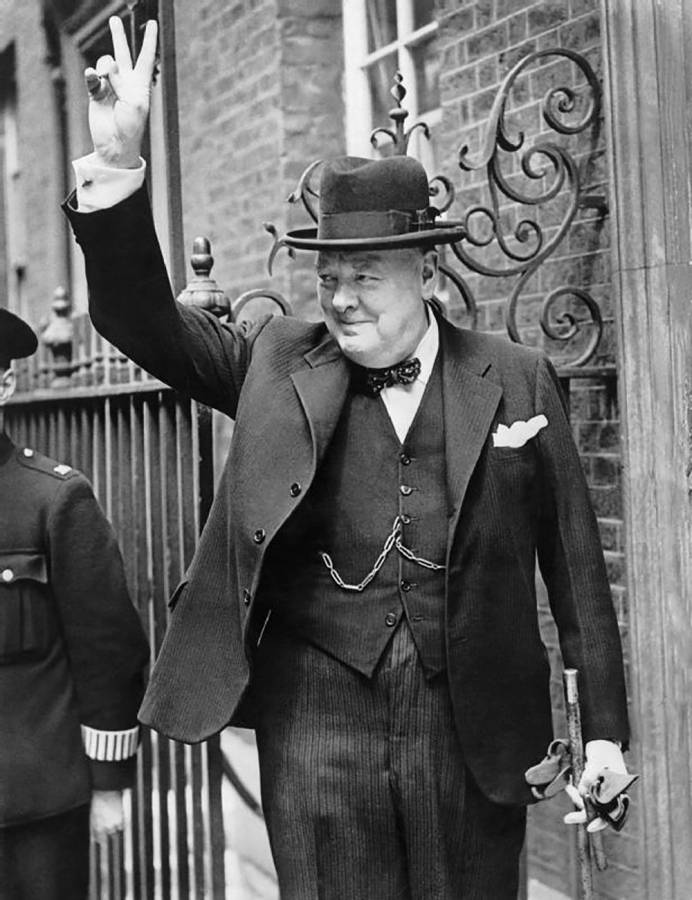
Senior British army officer Aylmer Haldane in his memoirs explained how he played a role in aborting the 1920 revolt. He said clans' armed men had to be mercilessly punished, admitting to destroying their villages. "Burning a village properly takes a long time, an hour or more according to size," he said. In other cases, British forces added to the villages' misery by cutting off their water and depriving them of staples. This is the vision that determined Churchill's policies and the actions of those who worked under his command while dealing with "primitive backward peoples". Churchill relied on the shock and awe, decades before the US followed suit during the occupation of Iraq. No one survived his onslaught on hot spots, neither a Sunni nor a Shiite nor a Kurd. They were all in the eyes of the British leader savages who deserved to be reprimanded for revolting against the Great Britain. In 1920, British archaeologist Thomas Edward Lawrence, also known as Lawrence of Arabia, wrote a letter that was published by the London-based Sunday Times condemning the British oppressive policies in Iraq. He said Britain had not fulfilled its promises and obligations. "We say we are in Mesopotamia to develop it for the benefit of the world. All experts say that the labour supply is the ruling factor in its development. How far will the killing of ten thousand villagers and townspeople this summer hinder the production of wheat, cotton, and oil? How long will we permit millions of pounds, thousands of Imperial troops, and tens of thousands of Arabs to be sacrificed on behalf of colonial administration which can benefit nobody but its administrators?" He concluded in his letter. These policies were not exclusive for Iraq; it reflected the general approach of Britain to submit colonized peoples. Churchill in an internal memo said he did not mind using lethal gases against revolting tribes in northern India because "they're really troublesome, let's gas them". "I really don't understand this squeamishness about poison gas," he added. Winners always write history and are capable of twisting facts all they want, a reality that we should never overlook while debating different dimensions of historical figures. This is Churchill who the West and Hollywood glorify. His own documented words show he was a racist war criminal who took no heed of human rights. The lesson is, we should not take common historical knowledge for granted, but rather dig deep and deduce facts related to figures and events from thorough research. The truth might turn out to be bleaker than we think.
Raseef22 is a not for profit entity. Our focus is on quality journalism. Every contribution to the NasRaseef membership goes directly towards journalism production. We stand independent, not accepting corporate sponsorships, sponsored content or political funding.
Support our mission to keep Raseef22 available to all readers by clicking here!
Interested in writing with us? Check our pitch process here!
